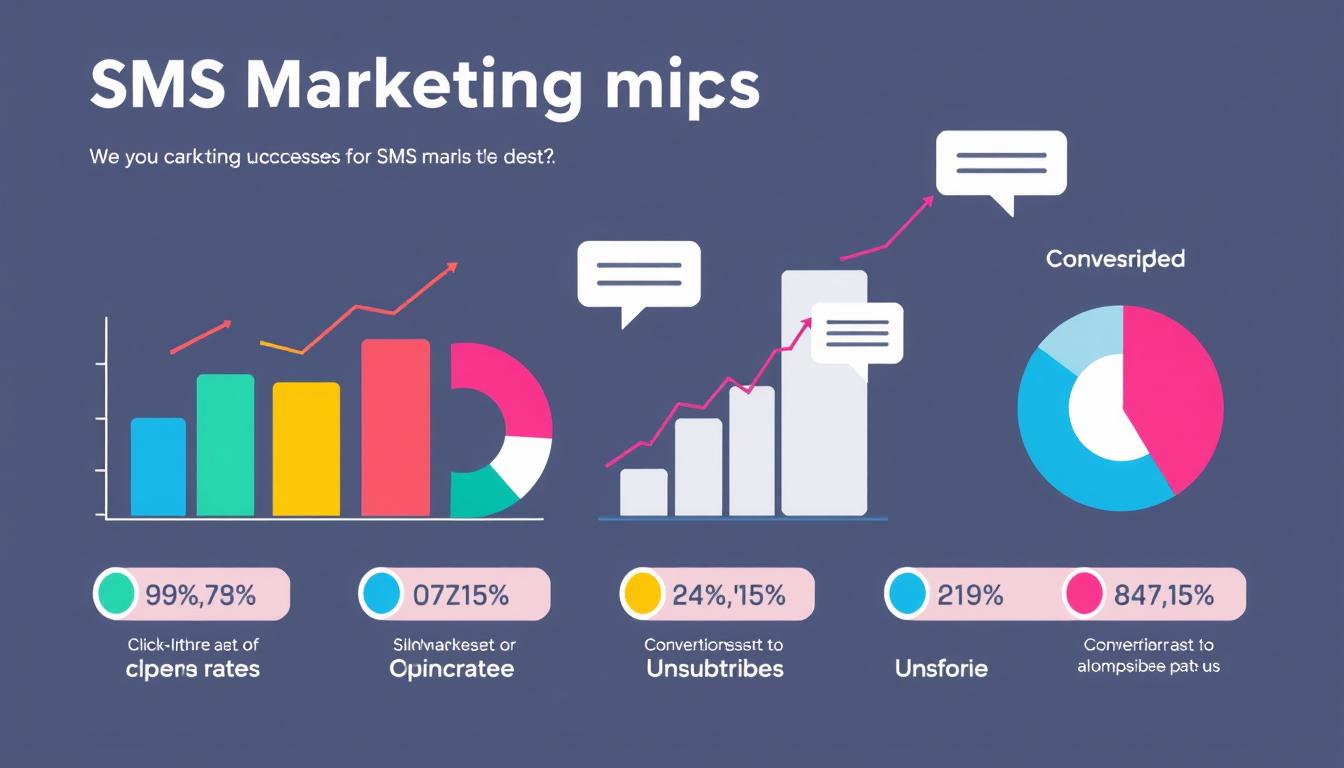In the fast-paced world of mobile marketing success, understanding SMS marketing metrics is crucial for any campaign aiming to thrive. Key performance indicators (KPIs) serve as the compass guiding marketers to assess the effectiveness of their SMS campaign performance. By focusing on specific KPIs, you can identify what works, allowing you to optimize your strategies and enhance engagement with your audience. This article will explore the importance of these metrics, offering valuable insights to help you maximize your next SMS marketing campaign.
Understanding SMS Marketing KPIs
Key Performance Indicators (KPIs) are essential in achieving success in SMS marketing campaigns. These metrics serve as benchmarks for evaluating the effectiveness of marketing efforts and ensuring that goals are met. Understanding the importance of KPIs allows marketers to make informed decisions based on measurable outcomes. By focusing on specific SMS marketing metrics, businesses can enhance their overall performance and drive engagement.
The importance of KPIs in SMS marketing
The importance of KPIs lies in their ability to quantify the success of marketing strategies. Through effective campaign tracking, businesses can identify what works and what needs improvement. High open rates and response rates are just a few examples of vital metrics that directly influence the effectiveness of SMS marketing efforts. Leveraging these indicators helps teams align their strategies with desired outcomes.
Key performance indicators to track
When it comes to KPIs, certain metrics emerge as particularly crucial for SMS marketing. Marketers should monitor the following indicators:
- Open rates
- Response rates
- Click-through rates
- Conversion rates
- Unsubscribe rates
These SMS marketing metrics can reveal trends and patterns that guide future efforts, ensuring campaigns are tailored to audience preferences and behaviors.
How to select the right KPIs for your campaign
Effective KPI selection requires understanding the specific goals of the campaign. Marketers should consider the following factors:
- Define campaign objectives: Establish clear goals to guide KPI selection.
- Understand the target audience: Tailor KPIs based on customer preferences and behaviors.
- Align metrics with business goals: Ensure that chosen KPIs contribute to overarching business objectives.
- Regularly review and adjust: Continuously monitor performance and adapt KPIs as necessary.
By following these steps, marketers can ensure they track the most relevant indicators for their SMS campaigns.

SMS Marketing KPIs: How To Succeed At Your Next Campaign
Focusing on SMS marketing key performance indicators provides valuable insights into campaign performance. Understanding metrics such as open rates, response rates, delivery rates, and conversion rates is essential for refining strategies and enhancing success. Properly interpreting these indicators allows marketers to make informed decisions that can significantly impact their overall effectiveness.
Measuring open rates and response rates
Measuring open rates in SMS campaigns serves as a primary gauge of engagement. A successful campaign will typically demonstrate a high open rate, indicating that the message resonated with the audience. Similarly, response rate analysis plays a crucial role in determining how effectively a message prompts actions from the recipients. By evaluating these metrics, marketers can identify which messages captivate their audience and adjust their content accordingly.
Delivery rates: What you need to know
Understanding SMS delivery success hinges on monitoring delivery rates. This metric reveals how many messages were successfully delivered to recipients’ devices. A high delivery rate demonstrates a well-maintained contact list and efficient messaging. Conversely, a low rate might suggest issues with data quality or technical problems. Addressing these concerns ensures maximum outreach, thus enhancing overall campaign effectiveness.
How conversion rates impact your overall success
The connection between conversion impact and marketing success cannot be overstated. High conversion rates indicate that the SMS messages not only reached the intended audience but also motivated them to take action, whether it’s making a purchase or signing up for a service. By tracking conversion rates, businesses can link SMS marketing efforts directly with revenue generation, making it clear how critical these metrics are for evaluating marketing investments.

Optimizing Your Campaign Through Analysis
In the dynamic world of SMS marketing, the importance of campaign optimization cannot be overstated. Continuous performance analysis allows marketers to uncover areas of strength and weakness within their campaigns. By effectively analyzing campaign data, businesses can refine their SMS marketing strategies and make informed decisions that lead to enhanced engagement and conversion rates.
Adopting an iterative improvements approach is key to successful campaigns. By consistently reviewing analytics and adjusting tactics based on performance insights, marketers can evolve their strategies over time. Tools that track metrics such as response rates, delivery rates, and conversion rates provide invaluable data that fuels this optimization process. The goal is to create an agile marketing environment where adjustments are made with each new piece of information gathered.
Ultimately, the path to effective SMS marketing lies in embracing data-driven decision-making. Regular analysis not only empowers marketers to implement improvements but also fosters a culture of accountability and responsiveness. This ongoing process ensures that campaigns are not only successful but also continually aligned with audience preferences and market trends, maximizing their overall impact.



